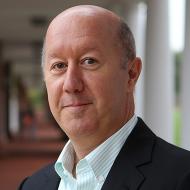
International Monetary Policy and Capital Control Measures: The Way Forward
In the wake of turbulence in global markets, the International Monetary Fund has urged the Federal Reserve to delay raising its benchmark interest rate from the 0–.25 percent at which it’s hovered since December 2008. The World Bank has been even more explicit, saying that a Fed rate increase would cause panic and turmoil in emerging markets.
In anticipation of the potential rate rise and given the increasing disparity in monetary policies of advanced countries, the Ministry of Strategy and Finance of the Republic of Korea and the Korea Development Institute hosted the 2015 Global Financial Stability Conference this summer in Seoul, South Korea. The conference brought together experts to discuss international policy and develop cooperation measures.
It is clear that researchers and policymakers are struggling to understand how international capital flows are influenced by unconventional monetary policies like massive reserve accumulation and quantitative easing, in which a central bank buys securities in order to lower interest rates and stimulate the economy.
Meanwhile, governments are trying to understand how they can build safety nets that shield them from volatile capital flows and still allow them to benefit from growth-enhancing flows.
We have failed, so far, to provide evidence for or against capital controls (that is, restrictions on capital flows in and out of domestic economies), in part because our measures of capital controls cannot capture the types of changes in capital controls most countries are contemplating. But as was evident in the final session of the conference, some countries are starting to document flows and capital controls in a way that may well improve our understanding.
There are two ways forward:
- We must focus our attention on creating measures of capital control that are available at a relatively high frequency and that can gauge the intensity of the controls. Most existing capital flow management measures are annual and formed by averaging various 0/1 indicator variables — many are not well-suited for assessing the impact of small changes in capital controls.
- We need to perform forensic accounting case studies on the exact decisions capital flows enable in local economies. I’ve discussed this with central bank governors around the world, and some day, it may occur.
Professor Warnock presented “Gauging the Effects of Small Changes in Capital Controls” at the 2015 Global Financial Stability Conference in Seoul.














